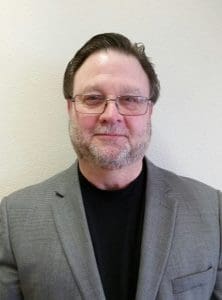Creating Conflict-Prepared Workforce in a Conflict-Prone World. Member Spotlight: J. David Renfro
 Dave Renfro self-identifies as a peacemaker. He’s the principal and founding officer of J. David Renfro Conflict Resolution Services, LLC, which has the mission of “Assisting Labor-Management Leaders Become Conflict Prepared in a Conflict Prone World.” As a recently retired 22-year veteran Commissioner of Mediation with the Federal Mediation and Conciliation Service (FMCS), Dave joined MBBI to remain active in conflict resolution work. He believes in MBBI’s mission and is contributing his expertise, talents, and time as able and requested.
Dave Renfro self-identifies as a peacemaker. He’s the principal and founding officer of J. David Renfro Conflict Resolution Services, LLC, which has the mission of “Assisting Labor-Management Leaders Become Conflict Prepared in a Conflict Prone World.” As a recently retired 22-year veteran Commissioner of Mediation with the Federal Mediation and Conciliation Service (FMCS), Dave joined MBBI to remain active in conflict resolution work. He believes in MBBI’s mission and is contributing his expertise, talents, and time as able and requested.
Dave has over 40 years of labor-management experience in collective bargaining and representation within organized work environments and possesses experiential perspectives on advocacy and neutrality. He is currently on the arbitration roster of the FMCS, an independent federal agency with a mission to preserve and promote labor-management peace and collaboration by providing mediation and conflict resolution services to industry, government agencies, and various other communities.
Peacemaking Demands Creativity
Dave began with FMCS in 1996, when he was assigned to the Dallas, Texas field office. His previous experiences as a Vietnam Combat Veteran, Law Enforcement Officer, and public-school teacher helped shaped his motivation to join FMCS. This past experience causes Dave to appreciate anything that informs people for perspectives in solving conflicts by means other than violence.
In his university classes and labor-management training programs, Dave frequently ran simulations to assess students’ skill levels in dispute resolution, hostage negotiations, foundations of conflict, and mediation courses. The diversity of conflicts and disputants demand creativity from experienced mediators like Dave in teaching dispute resolution skills and providing practical simulations for future mediators to equip them in responding effectively.
The Mathematics of Language in Peacebuilding
A mediator’s best tool, Dave believes, is communication, especially the power of language. Mediators must pay a lot of attention to listening. We should also be just as sensitive to and cognizant of how we speak. To effectively communicate, we must connect by hearing where others are at rather than speaking from where we’re at and just assuming they’ll connect with us.
According to Dave, the term “but” is one of the most disconnecting and even violent words in our language because it is insincere, if not outright deceiving. Statements that include the word “but” tend to turn the listener’s ear to the negative, negating the entire positive parts of a statement. Dave used this sentence as an example: “I like your shirt, but wish it was a different color. This means he didn’t really like your shirt and the insincerity of the “but” demonstrates this.” To that end, Dave encourages people to “keep your ‘buts’ out of other people’s faces. Changing how you speak, changes how others listen and make you a better mediator.”
Inspired by The Center for Nonviolent Communication (CNVC) groundbreaking contribution to communications and mediation, Dave believes finding more targeted and peaceful ways to communicate is, in essence, learning how to use language as math. “In other words, when adding to what someone else has said, rather than subtracting from it, people want to hear what you have to say. That’s why saying ‘but’ subtracts value while saying ‘and’ adds value. Changing your vocabulary changes how you communicate and how others respond. “Shooting for a deadline” implies violence while “agreeing on a deadline” implies collaboration. This minor change makes speech more interactive, direct and peaceful.
The Center for NVC has influenced Dave’s mediation and teaching careers. He views mediations as an instructional tool and process for people in dispute and helps mediators stronger and more effective.
Dave’s message to fellow MBBI members: “Blessed be the peacemakers.”
Article by Ben Lutz, MBBI Writer
